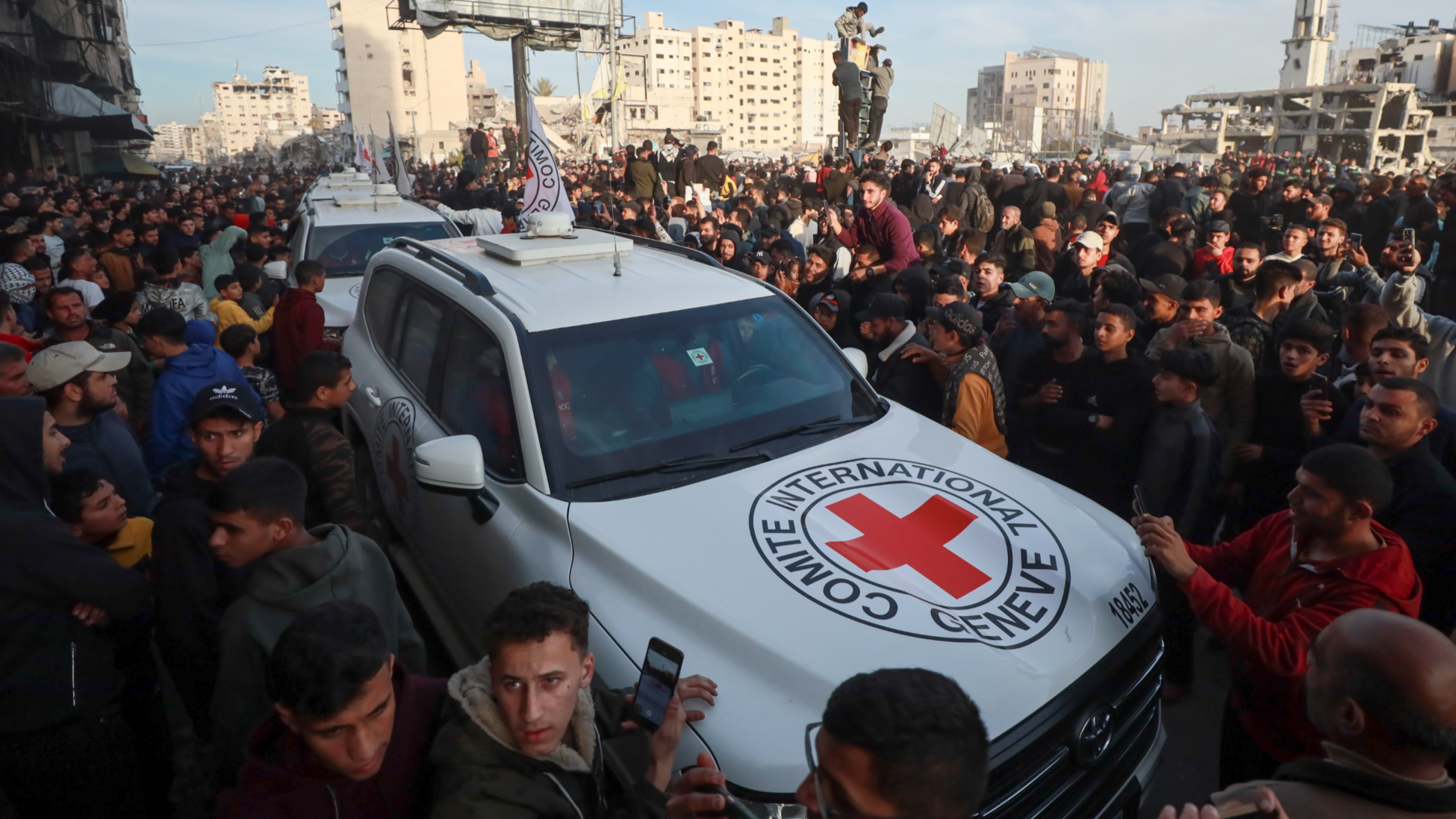World welcomes news of truce and hostage release pact set to begin Jan 19

DOHA/JERUSALEM — Israel and Hamas have agreed to a Gaza cease-fire-for-hostages deal following intensive mediation by Qatar, Egypt and the United States, Qatar’s prime minister announced on Jan 15.
The agreement includes an initial 42-day phase during which more than 15 months of fighting in Gaza will halt. The Israeli military will withdraw from populated areas to the outskirts of Gaza, allowing displaced Palestinians to return to their residences in the Gaza Strip.
Humanitarian aid will flow in, with 600 trucks entering Gaza daily, including 50 carrying much-needed fuel to restore electricity in the territory, according to Israel’s state-owned Kan TV news.
At a press conference, Qatari Prime Minister and Foreign Minister Sheikh Mohammed bin Abdulrahman bin Jassim Al Thani announced that Israel and Hamas had reached a deal on exchanging hostages and prisoners and establishing sustainable calm, aiming for a permanent cease-fire.
Implementation of the agreement is set to begin on Jan 19, with Hamas releasing 33 hostages in exchange for Palestinian prisoners during the first phase. Details of subsequent phases will be revealed later.
In a joint statement issued by Qatar, Egypt, and the US, the three mediators affirmed their role as guarantors of the cease-fire deal, saying they will help ensure that all three stages of the cease-fire will be fully implemented by both parties.
“Accordingly, the mediators will work together to ensure that the parties implement their obligations in the agreement and that the three stages continue in full,” the statement said.
US President Joe Biden, speaking from the White House, called the agreement “one of the toughest negotiations I’ve ever experienced”, and emphasized the goal of ending the war. During the next six weeks, “Israel will negotiate the necessary arrangements to get phase two, which is a permanent end of the war,” Biden said.
United Nations Secretary-General Antonio Guterres welcomed the agreement, saying, “Our priority must be to ease the tremendous suffering caused by this conflict.” He added that the UN stands ready to support the deal’s implementation and deliver sustained humanitarian relief to Palestinians.
Guterres also urged all parties to work toward a “negotiated two-state solution” as an urgent priority.
Hamas hailed the agreement as a victory, with senior official Khalil al-Hayya praising the resilience and sacrifices of Palestinians.
The Israeli Security Cabinet and government were set to hold meetings to vote on the deal on Jan 17. While Prime Minister Benjamin Netanyahu is believed to have a majority, key coalition partners Bezalel Smotrich and Itamar Ben-Gvir have threatened to quit the government unless there is a clear commitment to resume fighting in Gaza after the hostages’ return. Such a move could dissolve Netanyahu’s majority, potentially triggering early elections.
Israeli President Isaac Herzog urged the government to approve the agreement, describing it as “the right, important, and necessary move.”
The deal, first outlined in May 2024, follows about a year of on-and-off indirect talks between Israel and Hamas, culminating in four days of intensive negotiations in Doha.
Since the war began on Oct 7, 2023, more than 46,700 Palestinians and 1,200 Israelis have been killed, and Gaza has been reduced to rubble.
In Gaza, thousands of people celebrated the cease-fire deal in open areas between tents and bombed-up buildings.
Egyptian President Abdel-Fattah al-Sisi welcomed on Jan 15 the cease-fire agreement that was reached “after more than a year of arduous efforts under the mediation of Egypt, Qatar, and the United States.”
Egyptian state TV reported that coordination is currently underway to open the Palestinian side of the Rafah border crossing between Egypt and Gaza for sending humanitarian aid to the enclave.
“Egypt is getting ready to send the largest possible amount of aid to Gaza,” state TV quoted an unnamed high-ranking source as saying.
The United Arab Emirates expressed its strong support for the newly announced cease-fire agreement, along with the release of detainees, hostages and captives.
UAE Foreign Minister Abdullah bin Zayed Al Nahyan called for both parties to honor their commitments to the agreement, underscoring the need to alleviate the plight of Palestinian detainees and Israeli hostages.


